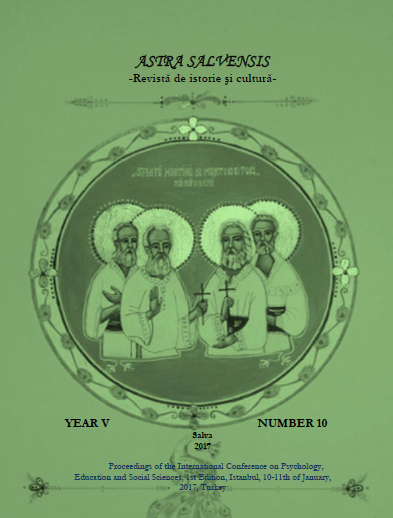Turkic Traditions In Musical Culture Of Mordovian-Karatai Ethnic Group
Turkic Traditions In Musical Culture Of Mordovian-Karatai Ethnic Group
Author(s): Nelya Kh. Nurgayanova, Svetlana V. Karkina, Aleksandr V. GluzmanSubject(s): Social Sciences
Published by: Asociaţiunea Transilvană pentru Literatura Română şi Cultura Poporului Român - ASTRA
Keywords: Mordovian; Karatai; ethnic culture; song; folklore;
Summary/Abstract: The Volga region is a unique polyethnic region of Russia, where the representatives of different peoples were in close interaction for many centuries, forming a unique layer of culture, which includes many components. An important role in this ethnic conglomerate belongs to the musical traditions embodied in folklore, musical instruments, ritual and festive performances, which make an important element of the ethnic culture identity for the indigenous peoples of the Volga region - Tatars, Russians, Mordvins, Chuvashes, Mariand Udmurts.One of the most ancient Volga peoples, who made a great contribution to the development and the preservation of the region unique traditions is the Mordva. The representatives of the Mordovian people are divided into two local ethnic groups - Erzya and Moksha, and there are two local ethnographic groups in their composition - the Karatai Mordva (karatai) and the Tengushev Mordva (shoksha).The article considers the musical culture of the Mordovian-Karatai, the development of which was influenced by the Finno-Ugric, Turkic and Slavic traditions of the Volga region of Russia. The role of external cultures in the development of the unique ethnic appearance of the Mordovian people turned out to bevery significant and influenced the development of its unique musical culture in many ways, which, thanks to external factors, acquired a special form of assimilation, which is the synthesis of different national music-style components.
Journal: Astra Salvensis - revista de istorie si cultura
- Issue Year: V/2017
- Issue No: 10
- Page Range: 205-212
- Page Count: 8
- Language: English

